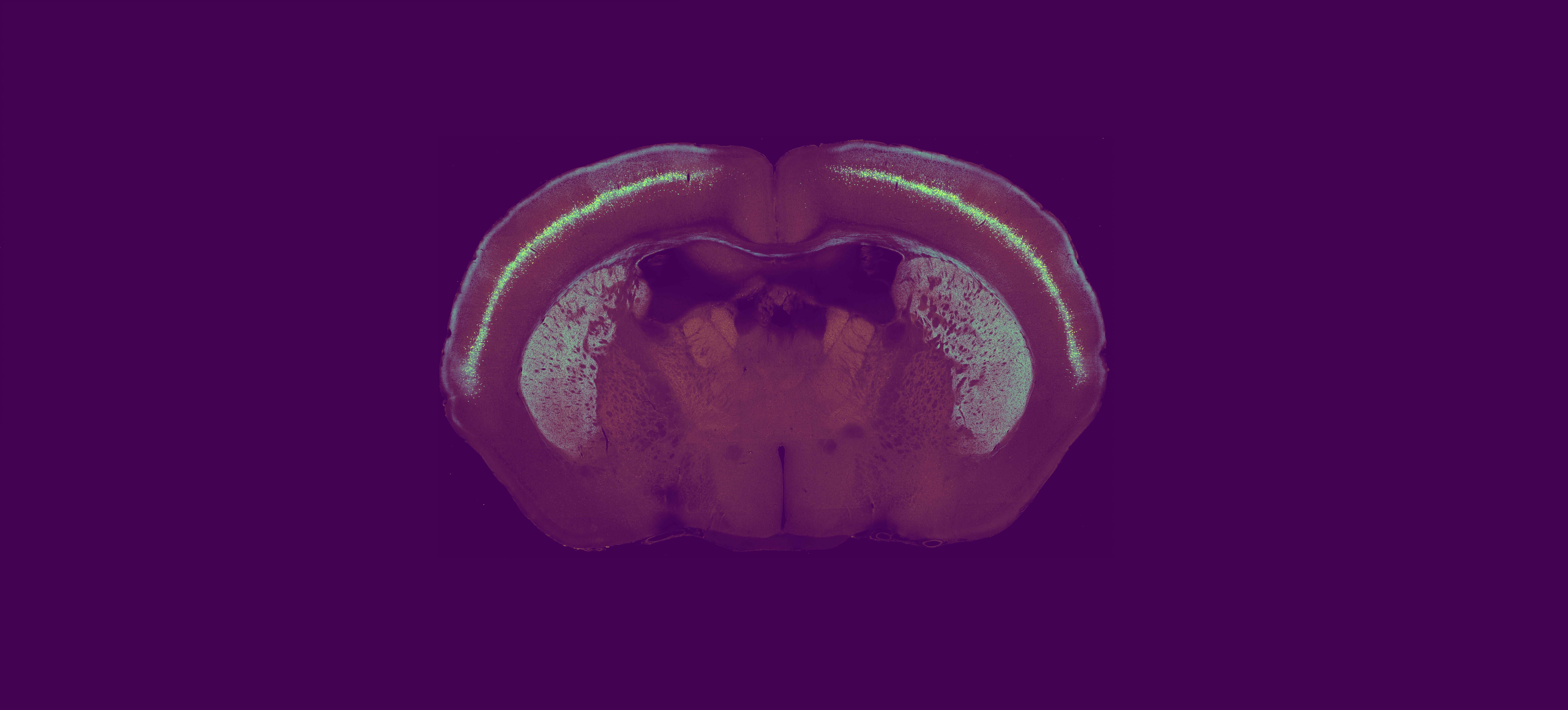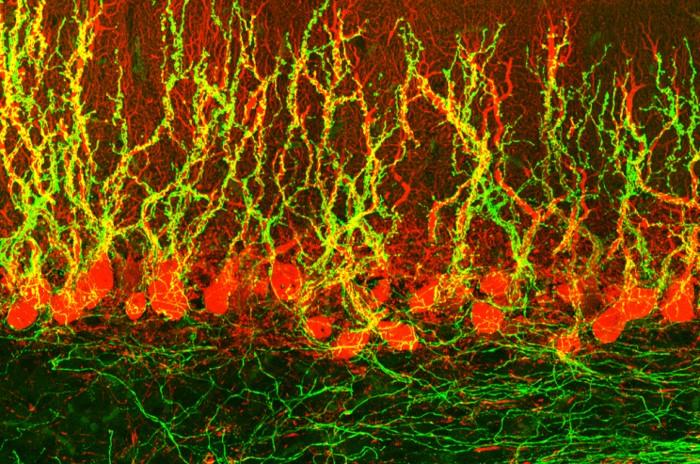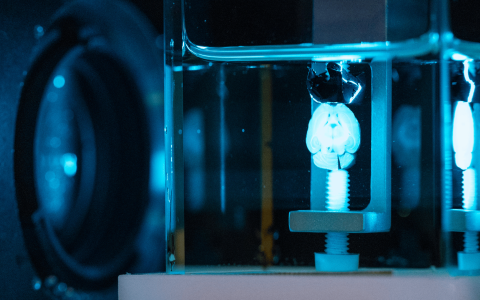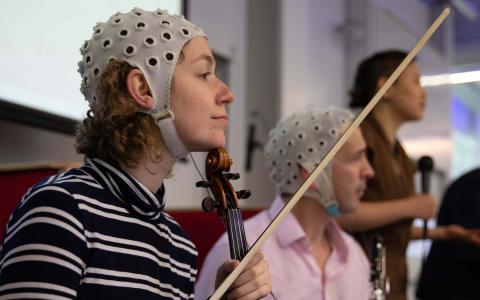
Brain Awareness Week: 12 ways to become a neuroscientist
The path to neuroscience isn’t always a straight one. In fact, it often seems that there are more neuroscientists who started out in other fields than those who knew they wanted to study the brain all along.
The week of March 16-22 marks Brain Awareness Week, a global campaign to celebrate the wonders of the brain and the value of brain research for society. To highlight just how many paths there are to neuroscience—and how many different questions you can answer through neuroscientific research—we sat down with 12 people working in the field to found out what drew them to it and what made them stay.
Grace Lindsay, Research Fellow, Gatsby Computational Neuroscience Unit and Sainsbury Wellcome Centre
‘When I was in high school I had competing interests between astronomy and psychology. They just seemed like two big mysteries: the origin of the universe and the brain. How could you not be interested! I wanted to understand not just what the brain does, but how. So that’s how I got into neuroscience: wanting to understand the mechanisms behind the weird things that the brain does. I was drawn towards computational neuroscience because I found that the computational methods were even better at kind of answering the “how” question. By building models—computational models—that do the same thing as the brain you can really understand how it works and how it gives rise to the behaviours that it does.’
Mark Wagner, Postdoctoral Research Fellow, Luo Lab, Stanford University
‘A lot of the applied math that I did in college was around machine learning, machine vision, and things like that. I was disappointed with the quality of those approaches and I thought, “what I’ll do is I’ll go solve the brain, and then once I solve the brain I’ll come back and solve machine learning”. But the brain turned out to be a little harder than I anticipated, so I never made it back.’
Elizabeth Holly, Postdoctoral Fellow, Fuccillo Lab, University of Pennsylvania
‘I’m very rebellious and if I’m told that I can’t do something—or girls can’t do something—I’m going to do it. I was very into math and science and even going to sleepaway summer camps that were all math or science. Kids normally go to fun summer camps; I was like, “MATH CAMP, LET’S GO!” In high school I got motivated to help people, and that eventually led to doing psychopharmacology research, or biological psychology research, at my undergraduate university. That experience really opened my eyes to neuroscience. I didn’t know that I could understand how the brain mediates behaviour and that was just mind-blowing to me.’

Sarah Olesen, PhD Student, Branco Lab, Sainsbury Wellcome Centre
‘When I was in 9th grade my class did a group project, but I wasn’t there the day the groups were formed. I had to do the two-week project on my own, but that meant I got to choose my own topic too, and I knew immediately that I wanted to look at the brain. I didn’t really know a lot about the brain at the time. I think the only thing I knew was “some people are left-hemisphere dominant and some are right-hemisphere dominant”. That project solidified my interest in studying the brain because I really saw how much of our personality and how we learn and perceive the world is linked to the brain. Also, because I looked into autism, I learned how specific disorders can give rise to very interesting behavioural phenotypes such as asocial behaviour. Abnormalities in other body parts can have adverse effects, but they don't necessarily change who you are or how you act, and that is just very intriguing.’
T., Supporting Animal Technician, Sainsbury Wellcome Centre
‘My introduction to science really came from my love of animals wanting to work with them. To understand the best animal husbandry methods, I had to learn the science behind them. Over the years my love for both have continue to grow.’
Dhananjay Bambah-Mukku, Research Associate, Dulac Lab, Harvard University
‘We had a lab course in my master’s programme where we would do experiments. One day I finished early, and in the back of the lab there was a rack of scientific magazines. I started thumbing through old issues of Nature and there was an August, 2000, issue with a headline that said “Erasing Fear” that sounded interesting. Initially I thought, "oh it must be a psychology paper", but I opened it and it was a paper by Karim Nader, Glenn E. Schafe, and Joseph Le Doux, which was a re-discovery of the phenomenon of re-consolidation, which is essentially that you can erase memories when you recall them many days after you’ve consolidated them by injecting protein synthesis inhibitors during recall. To me this was eye-opening because it was using molecular tools to manipulate something that I considered ineffable. What is a memory, and how can you manipulate it with molecules? That just brought both my interest in molecules and philosophy together in one paper. It took me two days to read the paper and at the end of that I decided I wanted to do neuroscience.’

Millie Rincón-Cortés, Postdoctoral Fellow, Grace Lab, University of Pittsburgh
‘I didn’t realise that you could make money and have a job doing science until I got accepted to this Sloan Foundation undergraduate fellowship programme and they paid me the cost of my rent and some of my miscellaneous expenses. That’s when I actually started thinking, “wow, this is serious, there are people whose job it is to be a researcher and they get paid and compensated for this”. That’s when I started to get serious about going to grad school and maybe becoming a scientist for a living.’
R., Junior Animal Technician, Sainsbury Wellcome Centre
‘I started out by studying animal management and found the whole science around behaviour and animals very interesting. I also have first-hand experience with anxiety and depression, so when a position to work in a neurobiological facility came up I was very excited. Neuroscience aims to expand our understanding of a lot of these issues, which is very fascinating to me.’
Daniel Regester, PhD Student, Isogai Lab, Sainsbury Wellcome Centre
‘I wanted to do science and research from when I was about 16, but I wanted to do physics until I studied philosophy at A-level. That course made me realise that studying the brain could help me discover things that would have a direct impact on pretty much all of the stale philosophical arguments that related to humans: free will, morality, value of art, selfhood—everything really. It is just a much more personal science than physics in general.’

‘At my university they had this class where we learned to do patch clamp recordings in slices and I just remember having this ‘aha!’ moment the first time I patched a cell and saw the action potential. I thought it was just the most amazing thing ever and I just said, “oh, I have to continue this somehow”.’
Victoria Tung, Research Fellow, Murray Lab, Sainsbury Wellcome Centre
‘I was always interested in the sciences, but I didn’t particularly enjoy undergrad neuroscience. I felt lost with all the anatomy of it. At the end of undergrad I realised I wasn’t sure I wanted to do the things my degree set me up for: health professions that I liked but wasn’t sure if I wanted to practice. Instead I did a one-year honours project, which happened to be a neuroscience project on the vestibular system, and enjoyed it, so I started doing a PhD, which was a follow-on project. In hindsight I remember there were little things where I said, “wait, I actually am really interested in this.” One of those was a lecture in undergrad about our vestibular cells and how they detect how we move. There were certain aspects that I thought were interesting, but it was never something I really thought, “oh this is what I’m going to work on”.’
L., Senior Animal Technician, Sainsbury Wellcome Centre
‘I always wanted to work with animals in some way. My dad was a maintenance guy for Cancer Research UK, and he told me about the job of “animal technician”. I’d never heard of it before, didn’t even know it existed. I thought it was a really cool opportunity to combine it animal work with science.’
Want to learn more about the brain? head to brainawareness.org to find out how to get involved

